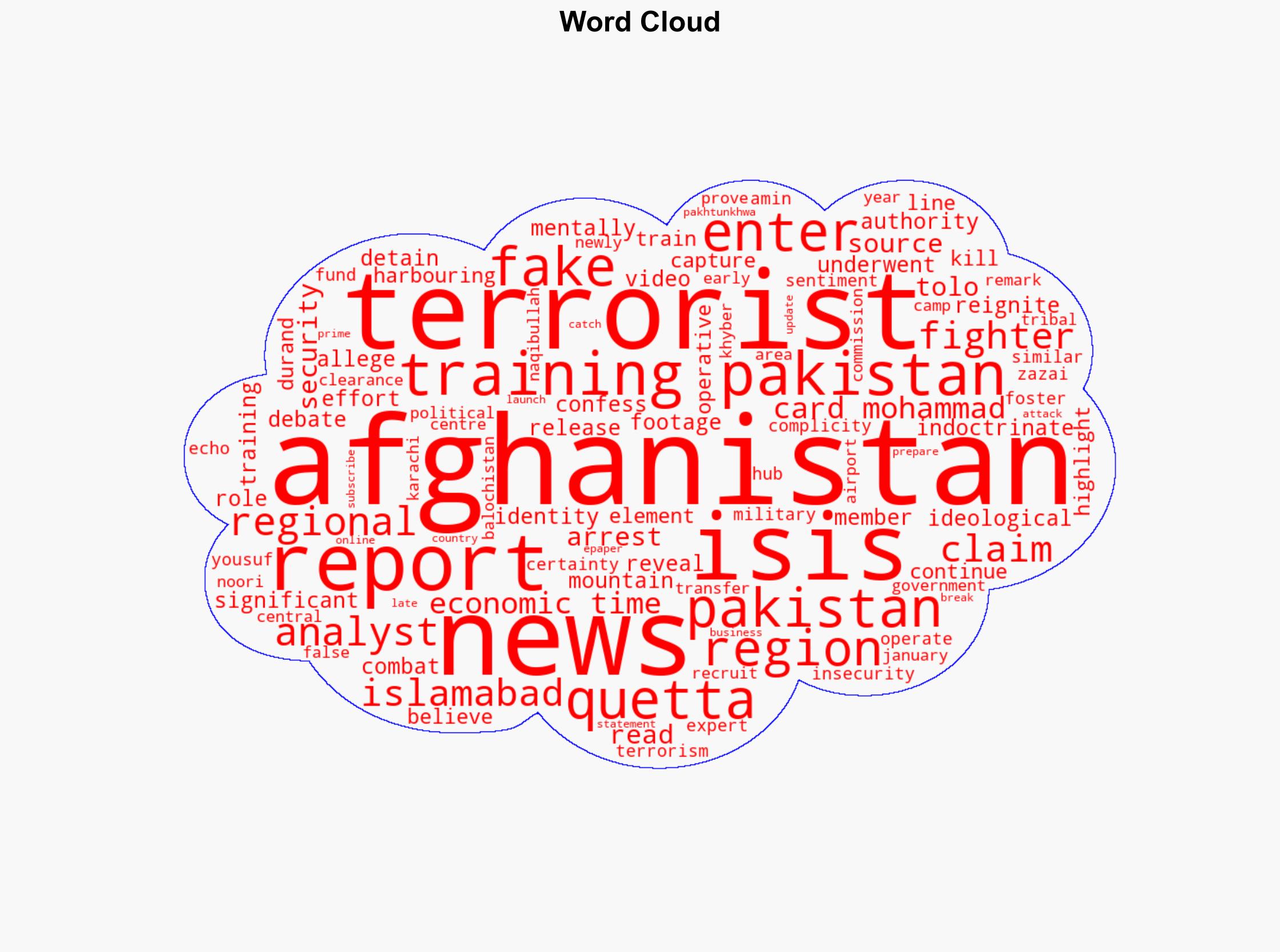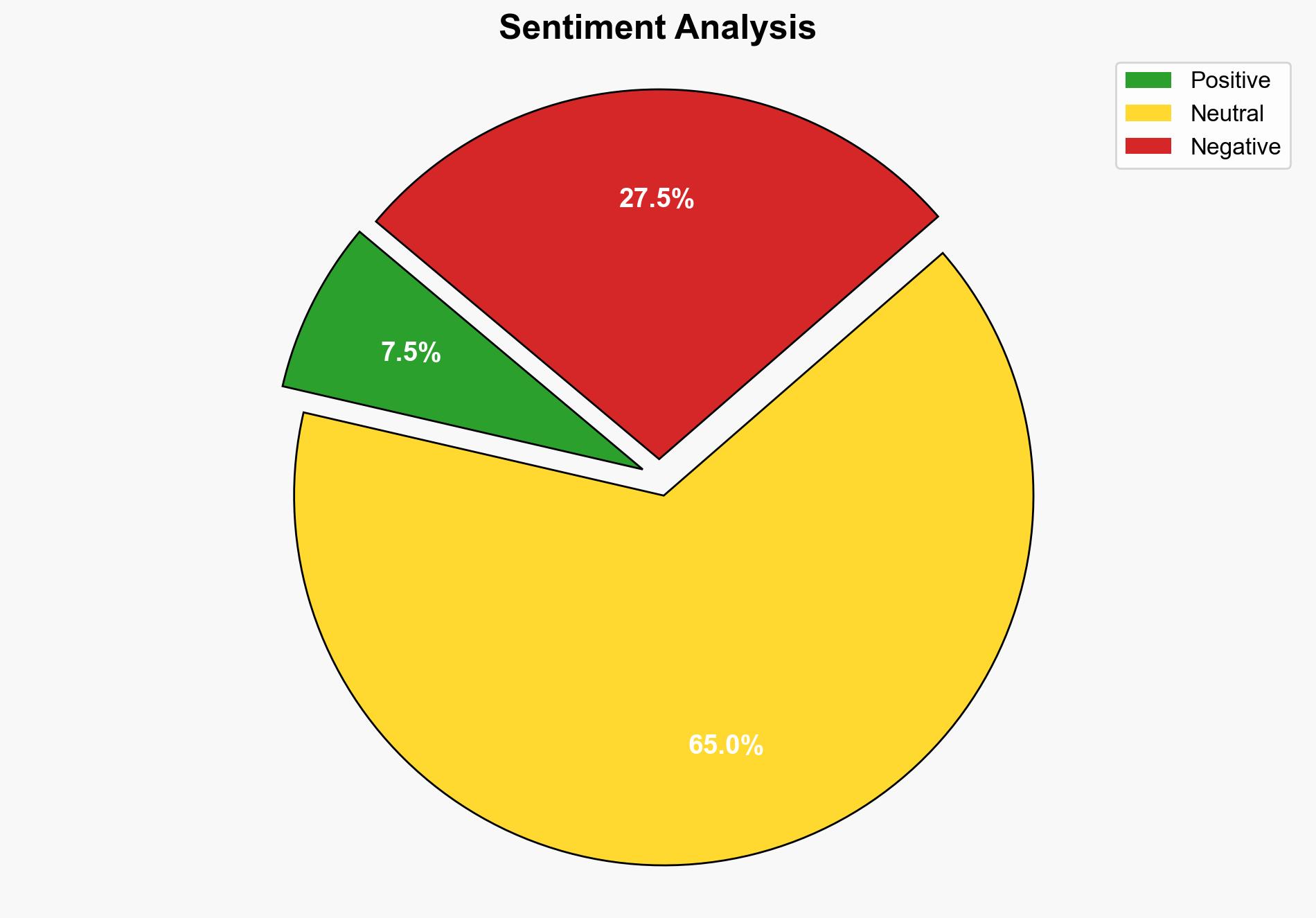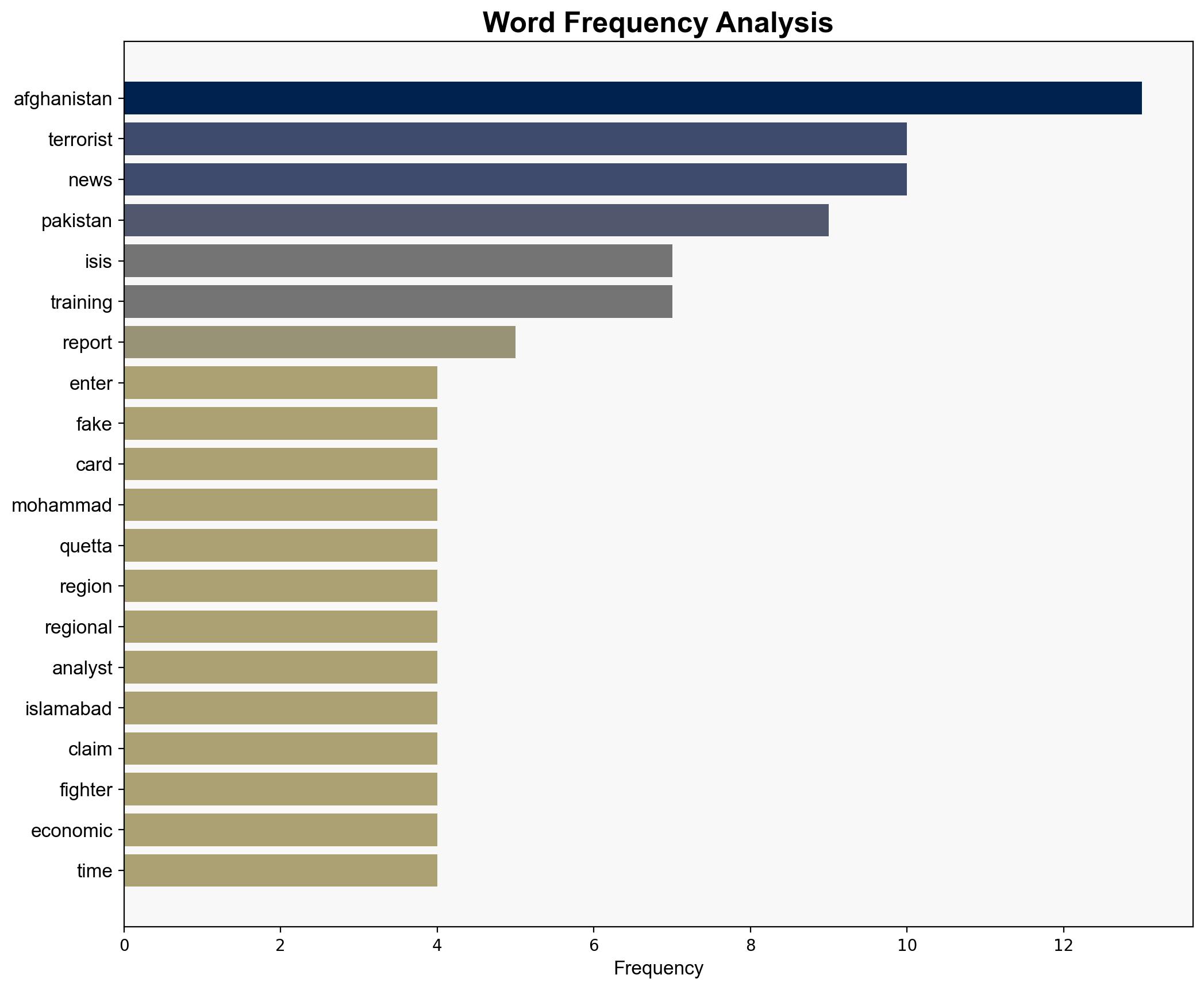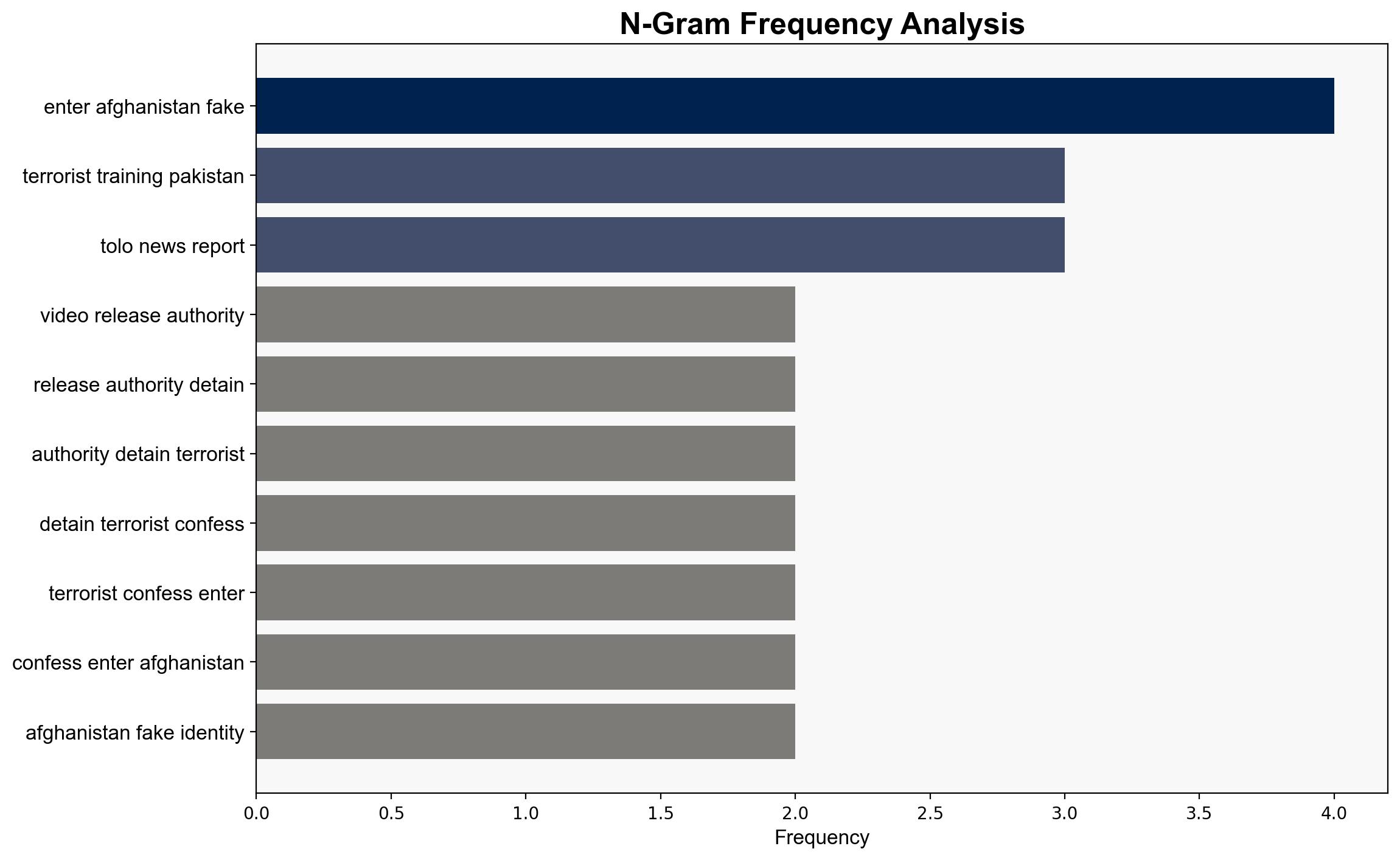ISIS terrorist confesses to training in Pakistan after arrest in Afghanistan – The Times of India
Published on: 2025-10-31
Intelligence Report: ISIS terrorist confesses to training in Pakistan after arrest in Afghanistan – The Times of India
1. BLUF (Bottom Line Up Front)
The most supported hypothesis is that Pakistan is involved, either directly or indirectly, in the training and facilitation of ISIS operatives who are then infiltrated into Afghanistan. The confidence level in this hypothesis is moderate due to corroborative reports and historical patterns, but it remains contingent on further verification. Recommended action includes increasing intelligence sharing and diplomatic engagement with Pakistan to address these security concerns.
2. Competing Hypotheses
1. **Hypothesis A**: Pakistan is actively involved in training and facilitating ISIS operatives, as evidenced by the confession of the arrested terrorist and corroborating reports of training camps in Pakistan.
2. **Hypothesis B**: The confession and reports are part of a disinformation campaign aimed at discrediting Pakistan, possibly orchestrated by rival factions or states seeking to destabilize regional relations.
Using ACH 2.0, Hypothesis A is better supported due to multiple independent reports and historical context of similar allegations against Pakistan. However, the possibility of disinformation (Hypothesis B) cannot be entirely dismissed without further evidence.
3. Key Assumptions and Red Flags
– **Assumptions**: It is assumed that the confession is genuine and not coerced, and that the reports of training camps are accurate.
– **Red Flags**: The potential for bias in the reporting sources, the lack of independent verification of the confession, and the possibility of political motivations behind the allegations.
– **Blind Spots**: Limited access to on-the-ground intelligence in Pakistan and potential underestimation of internal Pakistani efforts to combat terrorism.
4. Implications and Strategic Risks
– **Geopolitical**: Increased tensions between Afghanistan and Pakistan, potentially affecting regional stability.
– **Security**: Escalation of ISIS activities in Afghanistan, leading to heightened threats to regional and international security.
– **Diplomatic**: Strained relations between Pakistan and its allies, particularly those involved in counter-terrorism efforts.
5. Recommendations and Outlook
- Enhance intelligence cooperation with regional partners to verify the claims and gather more evidence.
- Engage in diplomatic dialogue with Pakistan to address and mitigate these security concerns.
- Scenario Projections:
- **Best Case**: Pakistan cooperates in counter-terrorism efforts, leading to a reduction in ISIS activities.
- **Worst Case**: Escalation of cross-border terrorism, destabilizing the region further.
- **Most Likely**: Continued allegations and tensions with sporadic cooperation on counter-terrorism.
6. Key Individuals and Entities
– Saeedullah: Confessed ISIS operative.
– Mohammad: Alias used by Saeedullah for infiltration.
– Yousuf Amin Zazai: Military expert cited in the report.
– Naqibullah Noori: Political analyst providing commentary.
7. Thematic Tags
national security threats, cybersecurity, counter-terrorism, regional focus




